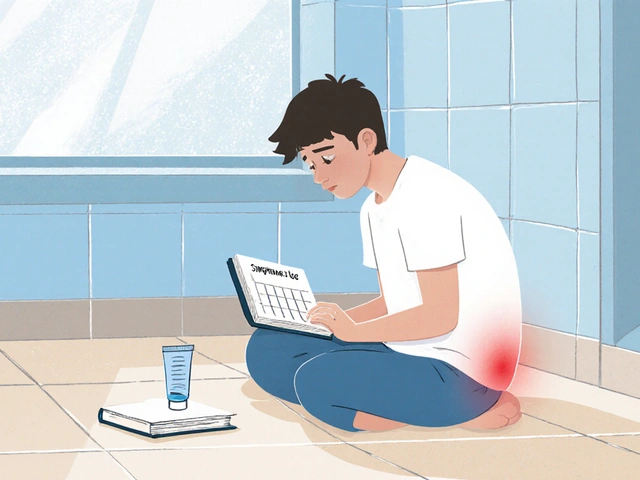
In an unparalleled research effort carried out at Children's Mercy Hospital, critical modifications have been made to the drug Bactrim—a medication frequently prescribed for acne treatment. This significant medical advancement traces back to the dedicated inquiry by Dr. Jenna Miller and Dr. Jennifer Goldman into the severe respiratory effects experienced by a patient, which ultimately led to a reevaluation of the drug's safety profile and its application in dermatological treatments.
As part of their investigation, Doctors Miller and Goldman scrutinized the case of Zei Uwadia, a young patient who developed a severe lung condition as a direct result of taking Bactrim. Zei's harrowing experience shed light on the possible severe respiratory implications linked to the antibiotic, which had previously been underreported. Zei's story was not an isolated incident, as further examination revealed additional cases where patients exhibited similar severe respiratory distress after the administration of Bactrim.
The research focused on establishing a concrete connection between Bactrim and the onset of serious respiratory issues. The determined efforts of the investigative team highlighted a critical oversight in the known side effects of the drug. Historically, Bactrim had been associated with various side effects, but severe respiratory distress was not prominently acknowledged among them. The findings of Drs. Miller and Goldman have unequivocally identified this grave risk, marking a pivotal turning point in the understanding of the drug's safety profile.
As a direct consequence of these revelations, the Food and Drug Administration (FDA) took decisive action by amending the labeling of Bactrim. The newly updated label now explicitly mentions respiratory failure as a potential side effect of the medication. This crucial update aims to better inform physicians and patients alike, equipping them with the knowledge necessary to make informed decisions regarding the use of Bactrim, particularly in the context of acne treatment.
The ramifications of this research extend beyond regulatory adjustments. The American Academy of Dermatology, a leading authority in the field, has responded to these findings by updating its acne treatment guidelines. In light of the potential risks associated with Bactrim, the organization now advises against the use of this antibiotic for the treatment of acne. This strategic shift reflects a broader commitment to patient safety and the importance of evidence-based medical practice.
The collective efforts of Dr. Jenna Miller, Dr. Jennifer Goldman, and their associates at Children's Mercy Hospital exemplify the profound impact of medical research on patient care and medication safety. By uncovering the unseen dangers of a widely used medication, they have initiated a wave of change that reassures the public about the rigorous scrutiny medicinal drugs undergo for the sake of health and wellbeing.
In conclusion, the thorough investigation into the adverse effects of Bactrim on respiratory health represents a milestone in dermatological and pharmaceutical practice. It underscores the necessity of continuous research and vigilance in the medical community to safeguard against potential risks. This case serves as a reminder of the complex interplay between medications and the human body, emphasizing the need for comprehensive understanding and cautious application of pharmaceutical interventions.







Ganesh Kamble
March 23, 2024 AT 01:32Jenni Waugh
March 24, 2024 AT 21:51Imagine if this had gone unnoticed for another decade. Thousands of teens would’ve been prescribed this like candy while their lungs slowly gave out.
Dr. Miller and Dr. Goldman didn’t just do their job-they saved lives. Meanwhile, Big Pharma’s silence speaks volumes. 🙄
Theresa Ordonda
March 25, 2024 AT 21:31But honestly? I’m not surprised. I’ve seen so many people on bactrim for acne and they all say ‘my chest feels tight’ and the doc just says ‘it’s anxiety.’
It’s wild how often we ignore the body’s screams until it’s too late.
Also-why is this the first time we’re hearing about this?? 🤔
Judy Schumacher
March 27, 2024 AT 18:22The FDA’s lag in recognizing respiratory distress as a class effect of sulfonamides reflects a deeply entrenched paradigm of therapeutic inertia, wherein off-label dermatological applications are granted de facto approval through clinical inertia rather than pharmacovigilance.
One must ask: how many other ‘benign’ antibiotics are quietly inducing subclinical pulmonary fibrosis in adolescents? The answer, statistically, is likely in the tens of thousands.
This is not progress. This is damage control dressed in white coats.
Megan Raines
March 28, 2024 AT 08:55Like, if it’s dangerous for skin, why isn’t it dangerous for lungs?
…I’m just asking.
Mamadou Seck
March 29, 2024 AT 21:35its an antibiotic for serious infections not pimples
doctors are lazy and just grab the cheapest script
now they wanna act like they just discovered fire